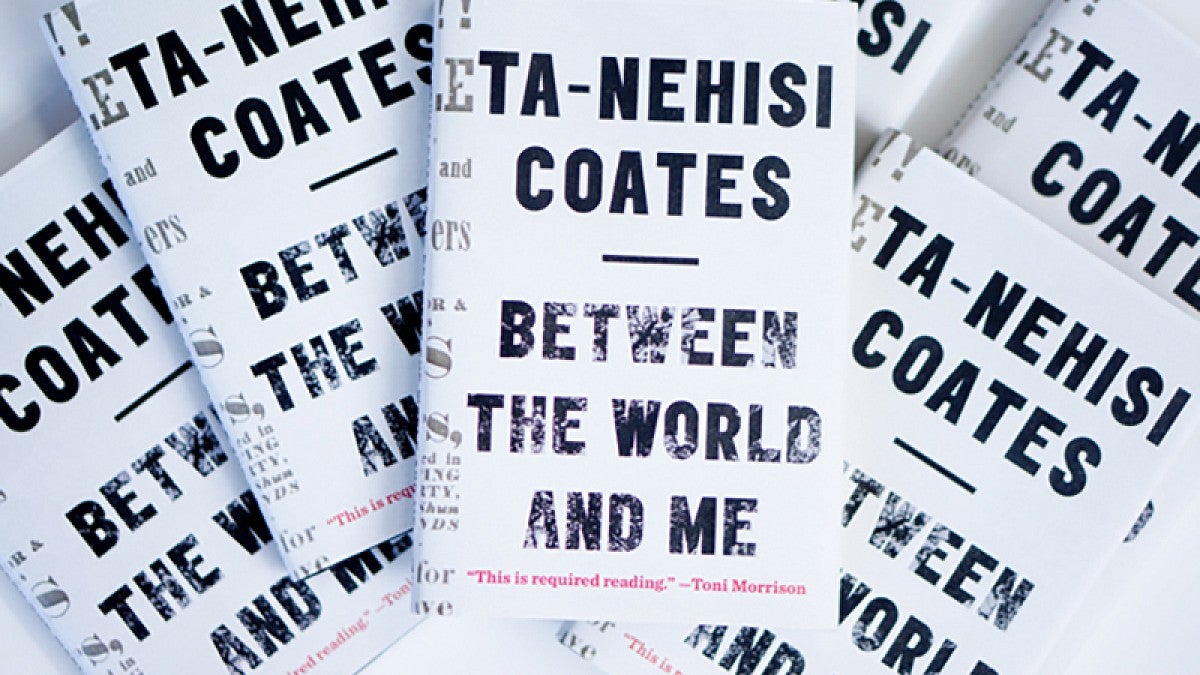While an inclusive learning environment has always been a goal of the first-year Common Reading program, unexpected societal events and the momentum of the Black Lives Matter movement have generated even broader interest in this year’s selection than originally anticipated.
“When we selected ‘Between the World and Me’ by Ta-Nehisi Coates as the common reading for this year’s incoming class, it was just a short time before events at Mizzou highlighted the critical need for robust and informed dialog on race on every college campus, including our own,” said Lisa Freinkel, vice provost and dean for undergraduate studies. “Now people across our campus are picking up the book with perhaps an even greater opportunity for understanding and change. And they do so in a context further energized by the work of student leaders, like the Black Student Task Force.”
Coates, whose work confronts many of the most challenging aspects of race in modern America, will be the 2017 Ruhl Lecturer at the UO School of Journalism and Communication, and will see his work widely engaged when he arrives on campus, as thousands of students, faculty and staff turn to it for an opportunity to better understand identity, diversity and difference through meaningful conversation.
The University of Oregon has long worked to help students understand the value of diversity and the benefits of understanding the experiences of others. The Common Reading program serves that purpose by providing a shared learning experience to incoming students.
“All incoming students received a copy of the book at IntroDUCKtion and faculty leading several of our Freshman Interest Groups have assigned it for their FIG classes,” said Sharon Kaplan, common reading program coordinator in undergraduate studies. “However, the interest has been far more broad. Faculty from a wide array of disciplines are finding ways to incorporate it into their classes and are opening the kind of discussion we had hoped it would bring about.”
While most people expect such a work to be discussed in literature courses, it does initially seem out of place in a human physiology class. Yet, that is exactly where Sierra Dawson, a lecturer and assistant vice provost, is tapping into it.
“The book is incredibly important from a cultural perspective,” Dawson said. “We won’t so much talk about it in a political context but as a way to better understand people from different backgrounds and things that may not be obvious that they bring to a situation. My students will hopefully one day be providing support to all kinds of people with their human physiology degree and I want them to understand and respect how other people may have experienced life.”
Beyond the classroom, student groups and other members of the campus community are coming together for discussion about the text and how it relates to life in America and at UO.
“Somewhat organically, we’ve seen many entities on campus organize reading groups where they gather and talk about the book,” Kaplan said. “What has also been notable is the widespread interest across campus. From the Physical Education and Recreation Inclusion Team to the Career Center, Residence Life, the Teaching and Learning Center and more, people are coming together around the book. And more partnerships are actively being developed as we speak.”
Undergraduate studies has many resources available online to help.
After reviewing nearly three dozen books, the selection committee — a volunteer group that includes about 20 students, faculty and staff members from across campus — was unanimous in its first choice. The book won the National Book Award for nonfiction and has been widely celebrated as one of the best books of 2015.
Toni Morrison compared Coates to James Baldwin and hails the book as “required reading” by “the single best writer on the subject of race in the United States.”
Nominations are now being sought for the 2016-17 selection.
“‘Between the World and Me’ has created a great opportunity for us to take this program to the next level,” Freinkel said. “For next year, we hope to select a book that continues that momentum and furthers the sense of inclusive and transformative learning that we take as our primary undergraduate mission.
Nominations must be submitted by Monday, Oct. 24.
The Common Reading Program is made possible by the Division of Undergraduate Studies, the Office of the President and the divisions of Equity and Inclusion and Student Life.
—By Tobin J. Klinger, University Communications


